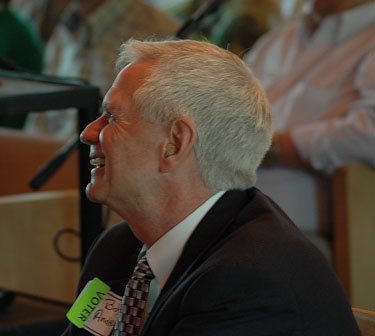On Friendship with Pastors...
But my pastor can't leave... she (he) is my best friend!" Interim practicioners in congregations run into this from time to time. The entire topic is usually an "eggshell" walking contest because pastors and families need a social life and with the congregation is the natural place to develop that. I won't debate that. Been there, done that.
However, it does create fuzzy boundaries when less differentiated pastors begin to create "friendships" instead of relationships. I'll go out on the limb and say that "friendships" benefit me and relationships (though "friendly") benefit the whole.. the congregational system.
I've been in two interim congregations where friendship boundary busting became a detriment that bled over into the interim transition (transitional dynamics: history, identity, power). In one setting the stories of "parties with the pastor" were abundant. Lots of friendship networks were created but no discipleship networks and spiritual needs were filled elsewhere, outside that particular church. The topic came up at a Session meeting and one of the Elders noted with chagrin that when he became "friends" with the pastor, he "gained a friend but lost a pastor".
The other account emerged in an interim start up retreat that I do. As we talked, it became clear that friendship led to less accountability, unwillingness to talk about difficult issues, and then a subtle leadership lethargy.
My strategy in brief has several components and they are "no-brainers" for experienced pastoral leaders:
1. Refresh the "role" of the pastor. Tend the professional role of "minister" in worship leadership, how people address you, ways you deal with appointments, etc. These may seem still and more formal at the beginning but it is a way to remind people (and ourselves) about the role of Minister of Word and Sacrament.
2. I do my best to find my friendship needs filled outside the congregation - usually with interim colleagues. I am friendly and fairly "laid back", but I am learning where the boundary lines are so that we are all focused on mission not club.
3. Pastor dependency is a symptom of the fuzzy boundaries. Equipping and developing new leadership and empowering them is key.
In the meantime, I love being friendly with a very warm and hospitable congregation!
Blessings,
Bob Anderson
Interim Minister
Collingwood Presbyterian Church
Toledo, OH
Tuesday, October 20, 2009
Subscribe to:
Comments (Atom)




